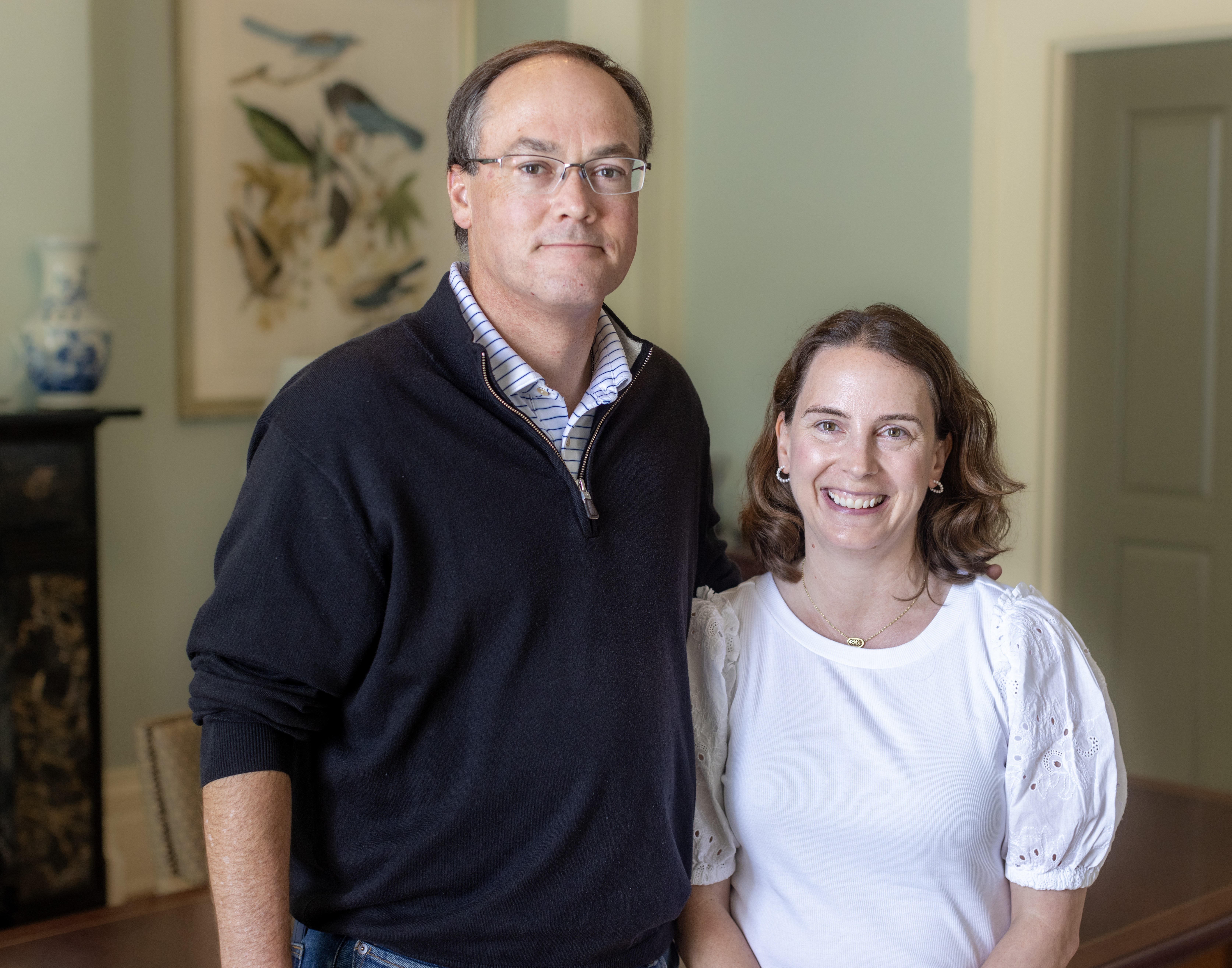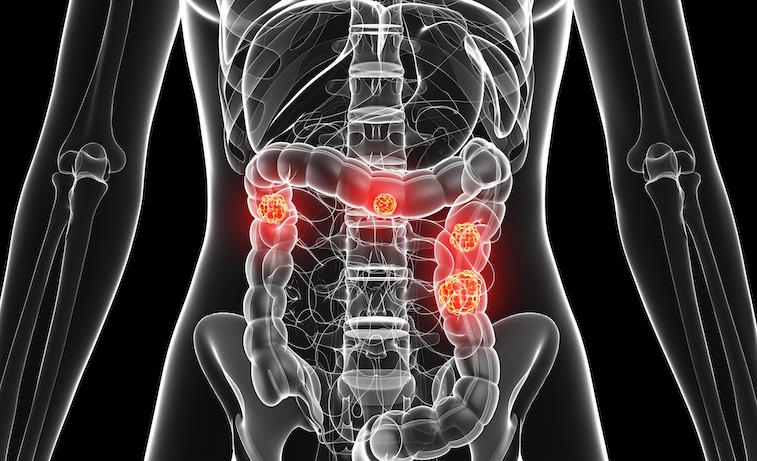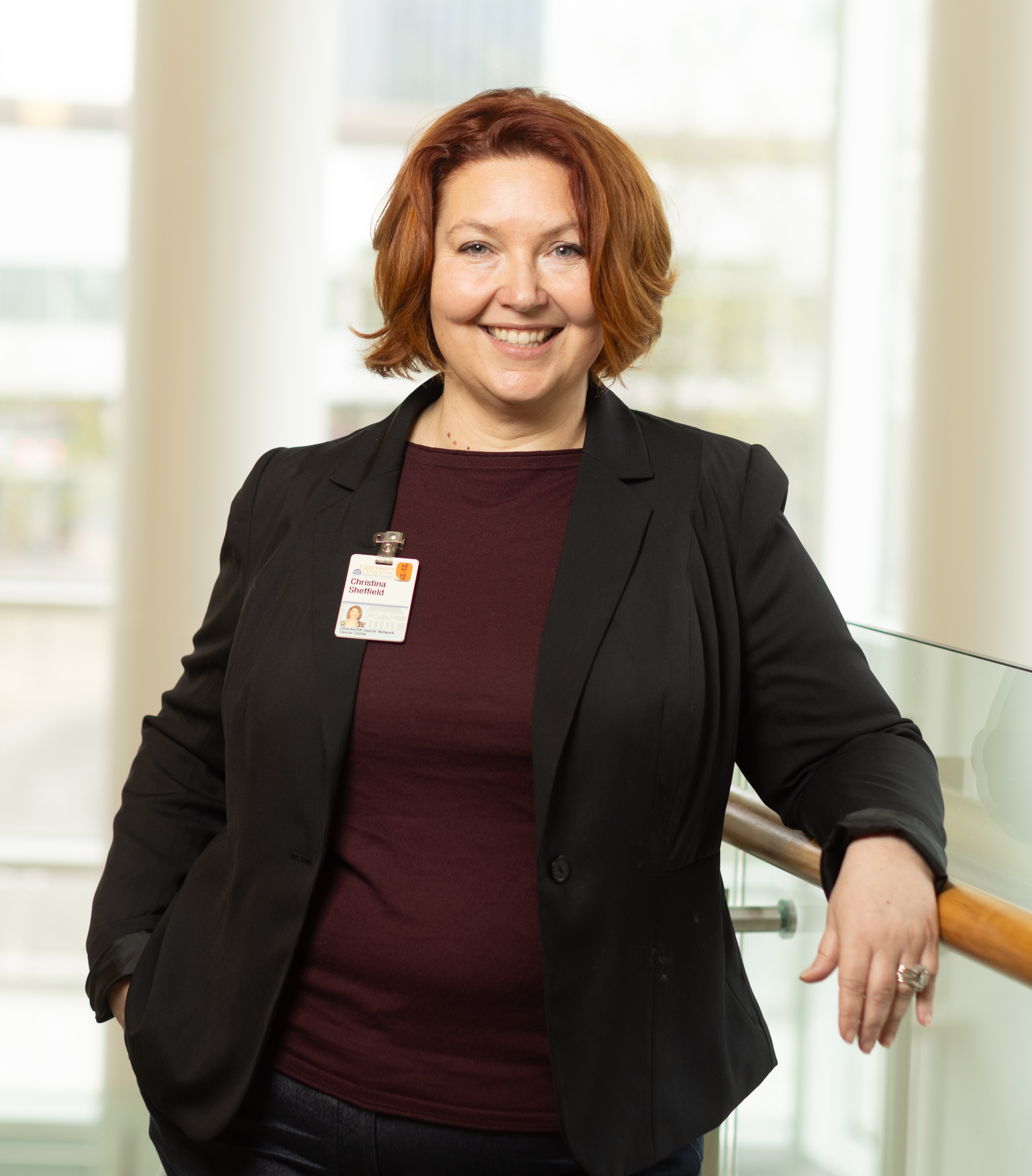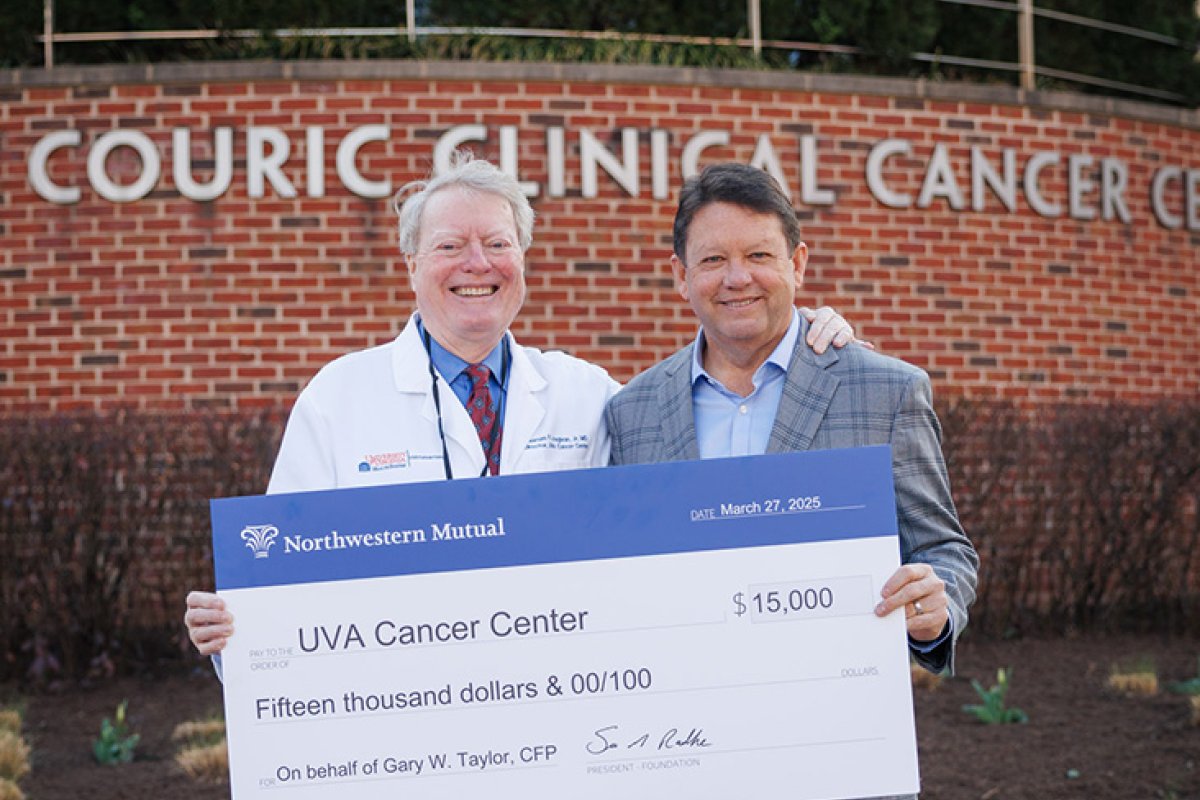Clearing Pathways
Colorectal cancer (CRC) is preventable, and early screening can be lifesaving. That’s good news because CRC is a leading cause of cancer death in people under 50 in the United States. Doctors recommend getting regular colonoscopies starting at age 45, even without a family history of CRC or the presence of other risk factors.
Unfortunately, UVA Cancer Center's research shows that many people in the commonwealth, particularly those in rural areas, don’t know about this recommendation, the benefits of screening, or the risks of delaying it. Or they can’t afford to care. Without symptoms, they might forgo driving 100 miles to the nearest clinic for a regular check-up from a primary care physician who would offer information about cancer screening and prevention, or they might be forced to delay taking off another day of work to travel back for a colonoscopy.
As a National Cancer Institute-designated Comprehensive Cancer Center, UVA Cancer Center is dedicated to providing more accessible and affordable cancer prevention and screening options for its community, a catchment area including 87 counties and 3.2 million residents. One-third of the area is rural, with people traveling two or more hours for medical care. To decrease the burden of the most prevalent and fatal cancers in this region—CRC, melanoma, and cancers of the breast, lung, prostate, and cervix—the center partners with community organizations and other healthcare providers to implement cancer prevention programs and increase access to early screening, diagnosis, and treatment. These efforts are led by the center's Community Outreach & Engagement program.
Recently, two UVA Cancer Center donors made gifts to support this work.
Angela Middleton, MD, and her family created a colon cancer screening fund that distributes free at-home CRC testing kits through primary care providers. As a family medicine physician, she witnesses firsthand what a delay in screening can do.

“While the reasons for delay in screening are multifactorial—patient medical costs, difficulty with transportation to medical sites, required time away from work, other obligations, fear or distrust of medical establishments—I have great hope that our family’s contribution to the colon cancer screening fund will help in the distribution of testing kits to those who would have difficulty accessing the screening measures themselves,” said Dr. Middleton.
“The Middleton family has been incredibly generous in helping us reach our under-resourced population about early colorectal screening. We’re so grateful for the support that allows us to serve all Virginians in fighting cancer,” said UVA Cancer Center Director Thomas P. Loughran Jr., MD.
Another supporter of the center's cancer screening and prevention efforts is Gary Taylor, a UVA alum and emeritus member of the UVA Cancer Center Advisory Board. Recently, Taylor received a 2025 Outstanding Community Service Award from Northwestern Mutual, which included a grant for UVA Cancer Center in honor of Taylor's dedication and service to the center. The grant will support increasing access to the center's screening and prevention programs. Many Virginians, especially those in rural areas, face prohibitive costs associated with traveling to a screening event or other cancer prevention program. To overcome these barriers, the grant may be used to cover transportation, food, or lodging expenses for these individuals.
“I’m proud to help UVA Cancer Center provide access to affordable cancer prevention for all patients. Sometimes situations can be overwhelming for people to get screened, and I’m thrilled to get this grant from Northwestern Mutual to support patients and their families to overcome barriers to care,” said Taylor.

“We are so grateful for supporters like Gary,” said Dr. Loughran. “This gift comes at an important time as we reach out into the community to make sure we can provide screenings to more folks in our catchment area, help them navigate through the system, and make it as easy as possible for them by relieving some of the financial burden. With help from donors like Gary, we can continue with this vital work.”
Part of that vital work is helping individuals identify and access the next steps after a screening event indicates a cancer risk. UVA Health's Cancer Screening & Supportive Care Services staff will guide these patients through the process of setting up additional testing and clinical care if necessary.
“We will hand-deliver patients to the front door of where they need to be,” said Christi Sheffield, the director of Cancer Screening & Supportive Care Services. "We can help them understand what test they’re about to have and why they’re having it. If they have questions about how to do it, we help them with that and then give them their results and help them if they need additional screening.
"We want to make it as easy as possible for people to get from screening to screening and then into cancer care or long-term follow-up care if they need it,” she said.


